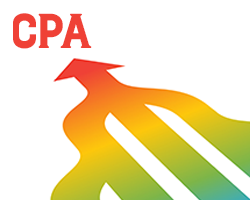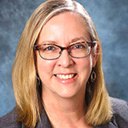An agile accounting profession requires adaptable licensing requirements
February 23, 2023 | Linda Wedul, CAE

Last week, the MNCPA introduced legislation to broaden the path to CPA licensure. With that introduction, articles were printed in the Journal of Accountancy, posts made by Going Concern, messages were sent by the AICPA and NASBA to their respective members, and MNCPA members met with leadership from the AICPA and NASBA.
A web search will find a large amount of content discussing the value of the 150-college credit requirement and its impact to the profession. The pandemic, demographics and demand for services accelerated the core problem: There are not enough CPAs now nor expected in the future to meet the needs of communities, entities and clients, setting up a perfect scenario for future financial failures. The consistent response by NASBA and the AICPA to evaluate the 150-hour rule is that it is not open for discussion.
Introducing legislation was driven by MNCPA member concerns and feedback. A Feb. 10 article published by the Journal of Accountancy quotes Ken Bishop, NASBA president and CEO, as saying a small number of association staff are driving efforts to broaden the paths to CPA licensure. I want to assure MNCPA members that efforts to broaden the path to licensure are a direct result of several years of member feedback and this initiative is directed by the MNCPA board with a unanimous vote in December.
Reflect on the past, build for the future
The 150-credit rule started in 1983 with one state making a change, not 50 states adopting the requirement in the same year. State by state, changes happened over time and the profession continued to provide auditing, tax and advisory services as states slowly adopted the rule. In fact, 10 years passed between Florida’s adoption of the 150-hour rule in 1983 until Tennessee passed its own law in 1993. Another 22 years passed before all 50 states, Guam, Puerto Rico and Washington, D.C., passed their own laws adopting the rule. Additionally, there are two jurisdictions that allow licensure without 150 credit hours if a candidate meets other requirements. I call these examples out to show that there have been and currently are already variations in requirements.
There is no benefit in debating if the change in 1983 was right or wrong. It was a different time and environment. The CPA profession has adapted to many changes over its long history. Licensure is adaptable. Substantial equivalency allows for flexibility and we can broaden the pathways to become a CPA without losing mobility. What drives the reluctance of AICPA and NASBA to evaluate the current licensing requirements?
Dissent is a precursor to change and introducing legislation opened up the conversation around licensure. Legislation can take several years to pass after it is introduced. Often, there are differing opinions to be considered and legislation brings stakeholders to the table.
Messaging from the AICPA and NASBA would lead one to believe that neither organization believes there is room to broaden the paths to become a CPA. Proposed changes are not radical, and they were developed with member input. Is there nothing that can be considered equivalent to 30 college credits? Minnesota and other states are reporting that entities are unable to find CPAs to perform required audits and clients are unable to find CPAs for tax and advisory services.
What does the AICPA and NASBA need to see happening in our communities or in the profession before they are willing to broaden the path to licensure?
Share your feedback
This initiative doesn’t evolve without continued input from MNCPA members. Please share feedback or questions with us by emailing info@mncpa.org.
Learn more about this initiative
The MNCPA introduced legislation (HF 1749 and SF 1660) in February 2023 to consider broadening the pathways to CPA licensure. The legislation was advocated for and supported by the MNCPA board after years of discussion with members concerning the ongoing CPA pipeline concerns.
Learn more about broadening the pathways to CPA licensure.
Topics: Legislative & Government Affairs, Accounting & Auditing, Staffing, Workplace Trends, Succession
Linda Wedul, CAE

Linda Wedul is president and CEO of the MNCPA. She’s usually spotted at MNCPA events, introducing herself to members with a warm smile and memorable laugh. Mixed among the Footnotes, accounting journals, leadership books and three monitors in her office, you’d be surprised to see a dog kennel. Her unpaid job is volunteering as a foster family for service dogs in training through Can-Do-Canines. She and her husband have two adult children and live in Farmington. Linda can be reached at 952-885-5516 or lwedul@mncpa.org.
Blog Posts by this author